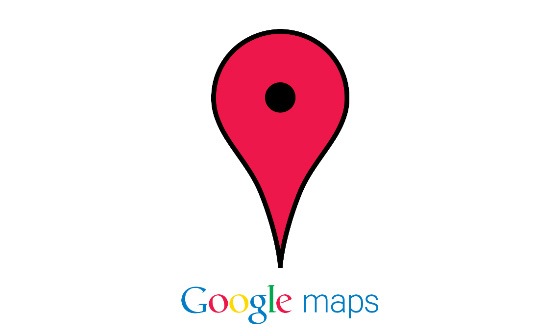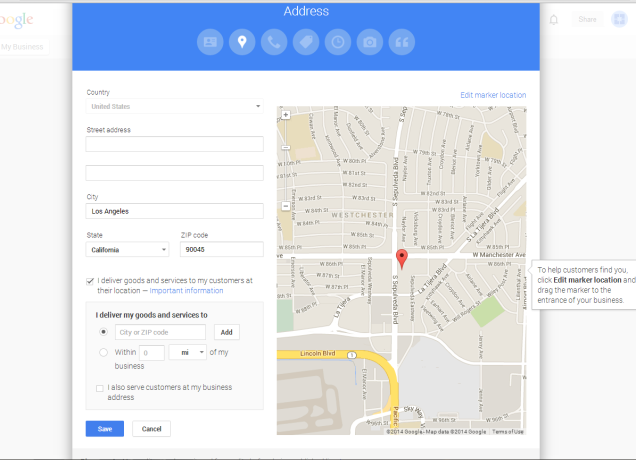1. You’re not optimizing your local search listings.
Are you listed on directory sites like Yelp, FourSquare, and Merchant Circle? If you’re not, this could be hurting your rankings. If you are listed across these sites but still aren’t seeing any boost in rakings, you will want to check to make sure you have listed all your information consistently. Check to ensure your business address, phone number, and website are all spelled correctly and don’t contain any unnecessary variation in syntax.
For example, if your address is “1234 Olive Branch Drive”, make sure every listing reads exactly like that. “1234 Olivebranch Drive” or “12 34 Olive branch dr” are both different listings!
Furthermore, if you find that you have duplicate listings, make sure you claim ONE and delete the duplicates, as this could be confusing people who are searching for your business.
2. You’re trying to rank for broad keywords.
If you’re in a small area, you might be able to rank for the keyword “plumber.” But if you’re in a bigger city, chances are that there are a lot of other plumbers working there with you. That means you have a lot of competition when people are searching locally!
So what can you do to improve this situation? Well, you might want to try linking for more specific keywords. For example, instead of “Cleveland plumber”, you might want to try “Cleveland plumber residential septic”. This way, you can rank for more specific keywords–and these are far more likely to get you ranking than something that’s too simple.
3. Using the same anchor text over and over.
You’ve probably heard something about keyword density before–something like “you must have 2-5% keyword density in your article to make it visible to search engines.” And you’ve more than likely also heard that you should use anchor text on your links so that you can target specific keywords.
Well, that’s not exactly true.
First of all, the keyword density thing is long-outdated. Google is smart–over the years, the search engine has learned to look for different variations on the same phrase. So that means that if you link to one page using the exact same anchor text over and over again, search engines (or even your visitors!) might think you’re trying something fishy. A good rule of thumb for you to remember is that if it looks spammy to you, it’s going to look spammy to your readers–and to the search engines. So regardless of what you’ve read about keyword density and repeating anchor text, following this practice is not going to help you in the long run.
So what should you do? Creating high-quality content that contains your keywords and key phrases is the best bet. Don’t stuff your keywords in or worry about using them in a bizarre way (such as our “Cleveland plumber residential septic” example–how would you fit that into a natural-sounding sentence?). Just write organically about your topic and you’ll be fine.
4. Using subpar content.
Did you hire someone to write your content for you or did you write your content yourself? If you hired someone else to write it, did you check their credentials and make sure that their work is easy to read? Or does it come off a bit unprofessional, with misspellings or poor grammar? If you did the work yourself, do you feel confident in your ability to write good content, or do you feel a little embarrassed of the work you put up?
If something seems off about your content, we have some bad news for you: Your readers will probably notice too. If your content doesn’t read well or is perceived as untrustworthy, you’re destined to stay buried under your competitors.
So if you feel confident about your writing skills, go ahead and post fresh content on your pages; just make sure that you edit your work before you post it.
If you don’t feel confident and choose to hire a writer, make sure you select a candidate who actually has quality work in his or her portfolio! Don’t just hire the “cheapest” writer because you want to save money.
Always remember that quality is key when it comes to content. No exceptions.
5. Focusing too much on getting links vs. creating content.
Most people who are just getting into SEO learn very quickly how important backlinks are.
And before you get all up in arms, we’ll make it perfectly clear that we’re NOT saying backlinks aren’t important.
K. With that out of the way, if you focus too heavily on getting links to your site, but don’t bother creating a good site, you’re kind of shooting yourself in the foot. You need a reason for your readers to want to return–a reason for them to trust you and your work. If you just get a bunch of people linking to a boring landing page, you’re not going to gain much for all your effort.
So while reaching out to other sites and building links is important, don’t forget to make your website spectacular, too!
6. Not using meta tags or descriptions.
Meta tags and descriptions help search engines categorize and cache your site. If a search engine can’t find any pertinent information, it’s not going to know how to place your site–and it won’t see it as “relevant”. That’s why you have to make sure to include meta tags and proper descriptions in every page’s header.
This probably seems like too much work or like it’s too complicated, especially if you’re an SEO beginner. But it doesn’t have to be. If you host your site on WordPress, you can get a plug-in that helps you fill in all this important information. Try Yoast or All-in-One SEO. In just a few minutes, you can easily fill in keywords and descriptions that make your site attractive to search engines–no coding required.
If you’re not on WordPress, you might have a tougher time with this, but you can read more about the usage of meta tags and descriptions here.
7. Not bothering with Google Analytics.
Have you signed up for Google Analytics? If not, you’re missing out on a lot of important data–data that can tell you just about everything you need to know about your site’s visitors.
When you use analytics, you gain access to insider knowledge: Who is visiting your site the most? Where are they from? Which pages are they visiting–and how long are they staying on each page? By learning a bit about the basics of Google Analytics, you can figure out what is and what isn’t working for your site. Once you have a basic idea of where your strengths lie, you can begin to provide more content that your visitors crave, and in turn, make a more focused plan of how you will update in the months to come.
Now that’s a good way of growing your readership, and a great way to nab some true fans.
8. Ignoring social media integration.
So let’s say you have your website set up and it looks great. You update your blog regularly. You even have a photo gallery dedicated to your company’s stellar products and services. But do you have a way for your visitors to connect with you via social media?
Social media is a huge part of marketing nowadays. If people can’t find your company on sites like Facebook and Twitter, you might be selling yourself short–think of all those fans you could be missing out on. Be sure to make it crystal clear to your visitors how they can connect with you on social media.
And if you haven’t signed up yet, we’ve got some news for you: you’d better get crackin’ on that. Don’t miss out on the opportunity to connect with your clients and customers simply because you’re too frightened of change or because you think you don’t have enough time to learn social media. It’s well worth it, we promise.
9. Forgetting to update your blog or post new content.
How many times have you told yourself that you were going to update your blog once a week–and then you wrote one post and forgot to update for a month?
Or, have you told yourself that you don’t care about updating a blog–you put up a website a few years ago and it’s good enough, right?
Well, that’s just no good. If you want to be found by the search engines, you have to make sure you look relevant. If you were searching for, say, a local veterinarian, and the website the search engines pulled up looked like it hadn’t been updated in 12 years, would you choose to call that vet or find another one? You’d probably head to another vet, right?
That’s exactly what Google tries to avoid. It wants to create the best experience for its users, so it will devalue your site if it doesn’t deliver fresh, relevant content. So whether you choose to blog or you just update your site’s existing content regularly, the key is to make sure you create some new data for the search engines to gobble up.
10. Thinking SEO is just a set-it-and-forget-it strategy.
So you’ve hired an SEO to go over your site and make sure it’s search-engine ready. You’ve paid them–probably a decent amount–and now you’re good to go, right?
Unfortunately, no. SEO best practices change all the time. Search engine algorithms constantly change, and what that means is what is a-okay today might not be tomorrow. Obviously, such drastic changes aren’t occurring that frequently, but every once in a while a big update will throw a wrench into rankings, sending previously-optimized sites crashing into the depths of the search engine result pages. It’s for this reason that you should keep an SEO expert available to monitor your site and make the necessary changes. After all, they keep up with the industry and it is their job to make sure their clients see results.
And hey, on that note, that’s what we do.
So if you’re looking for help with any of this, just drop us a line and let us know.
Internet Local Listings is an internet advertising company in Santa Ana, CA, serving clients across the country with the best website marketing services available in the industry. Visit us here for more information, or give us a call at (888) 770-3950 to see how we can help you be seen online.





